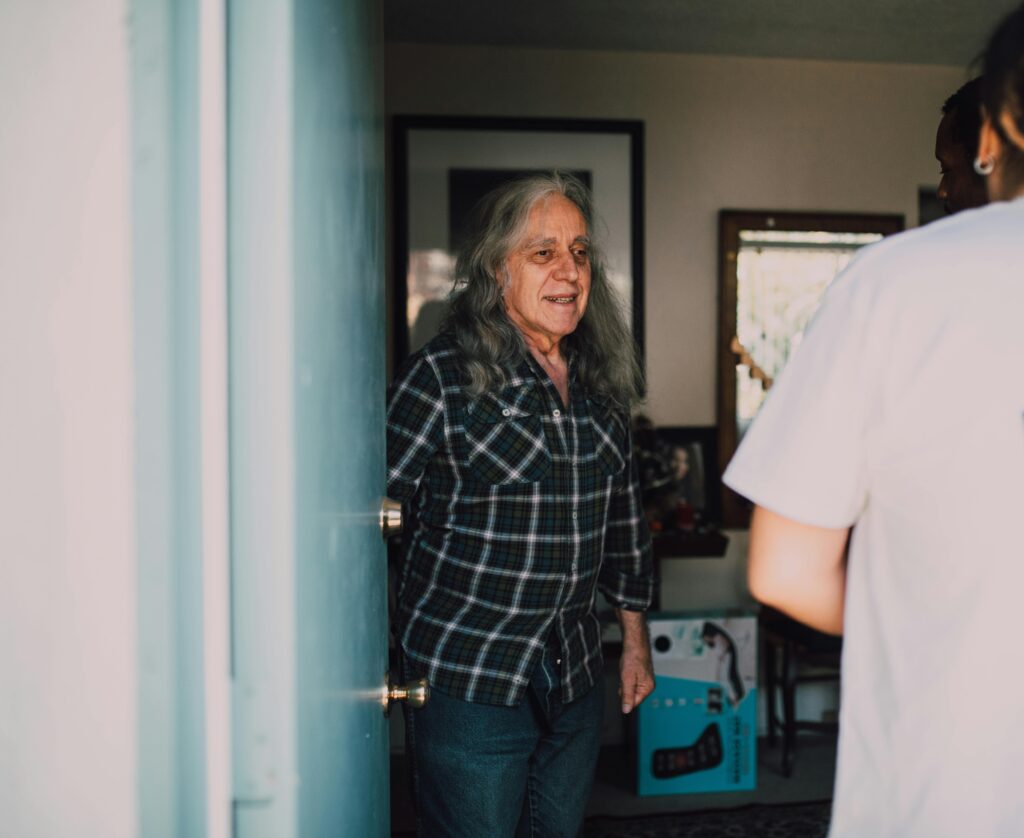Sign up to our newsletter
Get the latest news and views from Healthcare Central London, our member Practices and partners.
News
07 Apr 2025
National newspaper, The Telegraph, has spotlighted the success of the Community Health and Wellbeing Worker (CHWW) Programme in an extensive feature.
It describes the method of making monthly, personalised house calls as like “the return of the family doctor”, and as a holistic approach to better health that tackles socioeconomic, mental, physical and emotional factors

Speaking to The Telegraph for the feature, UK Health Secretary, Wes Streeting said, “I’m actually really interested in the community health worker model and the impact it’s having.
We’re seeing some really encouraging signs about what can happen if you’ve got the right care in the right place at the right time.”
Inspired by Brazil’s 30 Year Family Health Strategy, the programme has already demonstrated impressive results in improving community health and well-being.
The success of the CHWW Programme has received national coverage by the BBC, The Independent, and others too.
Saul Kaufmann — HCL Vice-Chair, St Johns Wood and Maida Vale PCN Clinical Director, GP Partner, St John’s Wood Medical Practice, and Senior Responsible Officer for the Octopus — commented, “We’re thrilled that this national publication has recognised the brilliance of our CHWWs.
“This really is a system-changing idea. Our hope is that it inspires others across the country to run their own programmes and transform more lives in the process.”
CHWWs are local, trained and entrenched members of the community, who visit around 120 households a month, building trust and connecting residents to health services.
Their work goes beyond basic health checks, it forms relationships and offers personalised support, especially in areas that need it the most.
The Westminster programme has significantly reduced hospital and A&E admissions, improved GP engagement, and boosted preventive healthcare efforts.
Data from its official first year shows a 10% reduction in hospital admissions in areas covered by CHWWs, as well as a 7% drop in A&E visits.
The programme’s flexible, agile and holistic model has helped people receive timely care, preventing serious health issues.
The CHWW Programme in Westminster operates under a model known as the ‘Octopus’, which brings together healthcare, local authority, and voluntary sector services to provide comprehensive, coordinated care.
This approach has been praised for its ability to quickly respond to urgent needs and offer ongoing, lifelong support to residents.
In addition to the London initiative, there are currently nearly 60 CHWWs across Cornwall too, working directly in nine local areas and supporting approximately 600 people from 530 households. This number continues to grow month by month, with the program’s impact expanding more in 2025.
For the residents of Cornwall, the biggest concerns remain financial hardship, housing instability, loneliness, and mental health challenges. The CHWW initiative is addressing these issues head-on, ensuring that the support is there when it’s needed most.
The Cornwall and Isles of Scilly Integrated Care System’s CHWW Programme is also shifting the conversation around local care in the community.
In just six months, from September 2024 to March 2025, the National Association of Primary Care (NAPC) reports CHWWs across the county made 6,062 pre-engagement contacts, supported 538 households, and carried out 1,876 face-to-face visits.
The model is spreading, with new teams are now on the ground in Newquay, Penzance and Newlyn, backed by three new partner organisations.
Cornwall’s CHWW approach has caught international attention too, having been showcased at the EuroPrev Conference in Zagreb, and recognised at home with a Health Equity Award from the South West Integrated Personalised Care Awards.
It’s been a quietly radical shift, driven by the simple, actionable change — turning up, listening, and staying the course.
As Dr. Matthew Harris — Honorary Consultant in Public Health Medicine at the Imperial College Healthcare NHS Trust — a key advocate of the programme, states: “This is about giving communities dignity and agency over their health and wellbeing.”
To speak to us about the CHWWs, please email hcl.corporate@nhs.net. For any press queries, contact the HCL Head of Communications and Engagement at hannah.wrathall2@nhs.net.
Get the latest news and views from Healthcare Central London, our member Practices and partners.